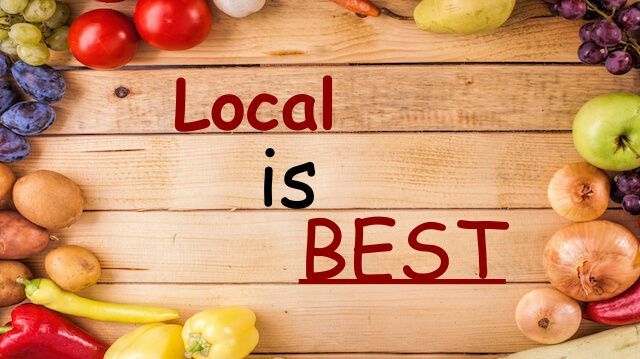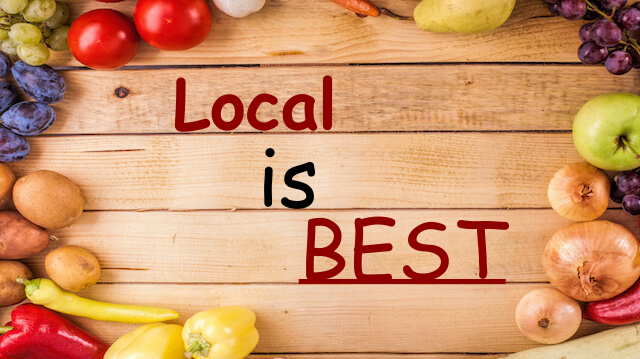
When was the last time you sliced into a homegrown heirloom tomato or chopped a fresh, locally-grown cucumber up for a salad? That vibrant taste, the scent that just smells like summer — there’s nothing quite like local food, and now science is backing up such claims. It turns out that our attitude about local, ethically-grown food affects our experience while eating it, for the better.
Our attitudes affect our taste experience
A study entitled “Savouring morality. Moral satisfaction renders food of ethical origin subjectively tastier” was published in the August 2015 issue of Appetite. Researchers conducted a series of experiments to determine if moral satisfaction impacts the taste of food. Researchers were most interested in answering one question through the experiments: Does food taste better when we feel that we’re doing something good for our community?
The first experiment used survey data regarding shopping habits gathered from 5,000 people in eight European Union countries, while the three other experiments involved smaller sample sizes. The three smaller experiments examined how individuals’ environmentalism and altruism influenced how much they enjoyed the food products they purchased, whether it was organic, fair-trade or locally-produced food.
The authors acknowledged that taste is one of the most important factors when it comes to our food choices, “often outweighing other important factors such as food’s healthiness and price,” but food can be affected by a wide range of external cues. Although food’s ethicality often doesn’t equate to the food’s nutritional quality — there are plenty of fair-trade chocolate bars on the market — previous studies indicated that labeling about a food’s fair-trade or organic nature positively affected the perceived taste.
The study found that buying ethical food leads to moral satisfaction. This in turn leads to enhanced taste expectations and experience. Finally, the overall experience leads to a higher likelihood of continued buying behavior. The combined results of the experiments concluded two very important points:
1.) “Food of ethical origin is experienced as tastier by people who experience moral satisfaction and formulate enhanced taste expectations,” and
2.) “The morality-enhanced tastiness of ethical food appears to act as a reinforcing mechanism that sustains consumers’ buying intentions and willingness to pay for ethical food — two measures likely to reflect consumers’ actual purchasing behavior.”
The study also found that endorsement plays a role in a food’s tastiness. If a consumer endorses the values associated with a locally-sourced or fair-trade food item, then he or she will have a better taste experience in contrast to people who did not subscribe to such values.
 A sense of community
A sense of community
Another study published this summer, conducted by the University of Iowa, found that relationships as well as values help inform our choices to shop locally. These “locavores” purchase locally-grown food because it makes them feel connected to the community. “It’s not just about the economical exchange; it’s a relational and ideological exchange as well,” said lead author Ion Vasi, associate professor at the University of Iowa’s Department of Sociology and Tippie College of Business, in the corresponding press release.
“It’s about valuing the relationship with the farmers and people who produce the food and believing that how they produce the food aligns with your personal values,” said Vasi. Indeed, the relative freshness of locally produced food is better — the USDA confirms that some produce is held in cold storage upwards of 10 months. However, our enjoyment of food largely hinges on how we feel when we purchase and eat it.
We’re big advocates for locally-sourced food and love that these results reinforce what we’ve been saying for years: Local food just tastes better. When’s the last time you popped by your local farmers’ market?
—Megan Winkler
Megan Winkler is an author, historian, Neurosculpting® meditation coach, certified nutritional consultant and DIY diva. When she’s not writing or teaching a class, Megan can be found in the water, on a yoga mat, learning a new instrument or singing karaoke. Her passion for a healthy mind-body-spirit relationship motivates her to explore all the natural world has to offer.
Sources:
http://www.sciencedirect.com/science/article/pii/S0195666315001452
http://www.eurekalert.org/pub_releases/2015-08/uoi-fic081915.php
http://agresearchmag.ars.usda.gov/2007/oct/apples

